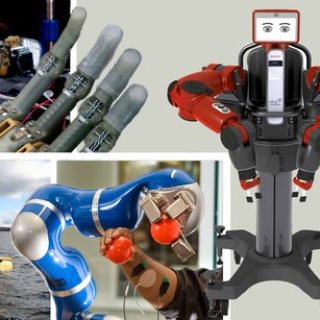Subject:AI&Robotics High Tea seminar, Prof. Jean-Paul Laumond, Host Martijn Wisse
We are pleased to invite you to attend the high tea seminar:
Tuesday July 3 2018,15.30-16.30
3ME, collegezaal A, Mekelweg 2
High tea buffet open from 15.15
*Please forward this invitation to interested students and employees
Title:Motion generation for nonholonomic systems: from robots to humans.
Summary: The talk reports more than 30 years of research conducted at LAAS on nonholonomic systems applied to mobile robotics and biomechanics. After introducing the wheel as a parangon of nonholonomic systems, the first part of the talk will show how mobile robotics has renewed since the 1990’s the research in robot motion planning and control by introducing the need to combine computational geometry and geometric control theory (optimal control and differential flatness). Doing so, Hilare was able in 1997 to park itself while maneuvering a trailer. In a second part of the presentation, we will focus on a multidisciplinary research action exploring the motor synergies of anthropomorphic walking. By combining biomechanical, neurophysiology, and robotics perspectives, it is shown that the wheel offers a relevant model to better understand human locomotion and to design new bipedal robot architectures.
Short Bio:
Jean-Paul Laumond was born in 1953 near Toulouse, France. He completed a M.S. in Mathematics, Ph.D. in Robotics, and Habilitation at the University of Paul Sabatier at Toulouse in 1976, 1984, and 1989, respectively. Prior to entering the field of robotics he taught high school mathematics from 1976 to 1983. In 1985 he became a research fellow for the LAAS-CNRS; where he later became Research Director for the Gepetto research group in 2006. He served as senior scientist at Stanford University in 1990, member of the French Comité National de la Recherche Scientifique from 1991 to 1995, and co-director of the French-Japanese lab (JRL) from 2005 to 2008. During the 1990s, he became involved with the European robotics projects PROMotion (1992-1995) and MOLOG (1992-2002); projects focusing on robot motion planning and control. In 2001 and 2002 he created and led Kineo CAM, a company focusing on motion planning technology. Laumond also teaches Robotics at the Ecole Normales Supérieure in Paris.
His research interests include robotics, motion planning and control, and anthropomorphic movement. For his work and contributions he has received several awards and honors, including being chosen as the 2011-2012 recipient of the Chaire Innovation technologique Liliane Bettencourt at Collège de France in Paris.
We are looking forward to see you all on the 3rd
Kind regards,
Karin van Tongeren
Secretary Robotics Institute
